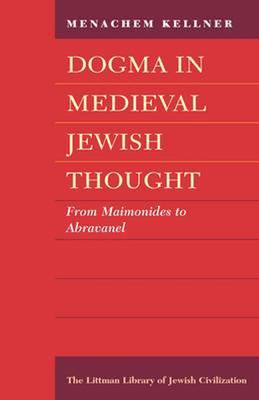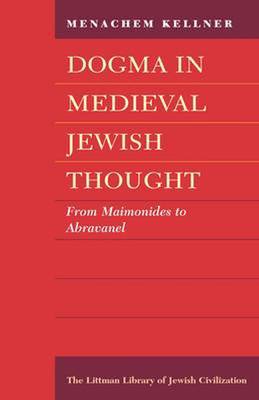
- Retrait gratuit dans votre magasin Club
- 7.000.000 titres dans notre catalogue
- Payer en toute sécurité
- Toujours un magasin près de chez vous
- Retrait gratuit dans votre magasin Club
- 7.000.0000 titres dans notre catalogue
- Payer en toute sécurité
- Toujours un magasin près de chez vous
Description
Dogma in Medieval Jewish Thought is an essay in the history of ideas which traces the development of creed formation in Judaism from its inception with Moses Maimonides (1138-1204) to the beginning of the sixteenth century when systematic attention to the problem disappeared from the agenda of Jewish intellectuals. The dogmatic systems of Maimonides, Duran, Crescas, Albo, Bibago, Abravanel, and a dozen lesser-known figures are described, analysed, and compared. Relevant texts are presented in English translation. For the most part these are texts which have never been critically edited and translated before.
Among the theses defended in the book are the following: that systematic attention to dogma qua dogma was a new feature in Jewish theology introduced by Maimonides (for reasons examined at length in the book); that the subject languished for the two centuries after Maimonides' death until it was revived in fifteenth-century Spain in response to Christian attacks on Judaism; that the differing systems of dogma offered by medieval Jewish thinkers reflect not different conceptions of what Judaism is, but different conceptions of what a principle of Judaism is; and that the very project of creed formation reflects an essentially Greek as opposed to a biblical/rabbinic view of the nature of religious faith and that this accounts for much of the resistance which Maimonides' innovation aroused.
Spécifications
Parties prenantes
- Auteur(s) :
- Editeur:
Contenu
- Nombre de pages :
- 324
- Langue:
- Anglais
- Collection :
Caractéristiques
- EAN:
- 9781904113218
- Date de parution :
- 22-07-04
- Format:
- Livre broché
- Format numérique:
- Trade paperback (VS)
- Dimensions :
- 138 mm x 216 mm
- Poids :
- 371 g

Les avis
Nous publions uniquement les avis qui respectent les conditions requises. Consultez nos conditions pour les avis.






